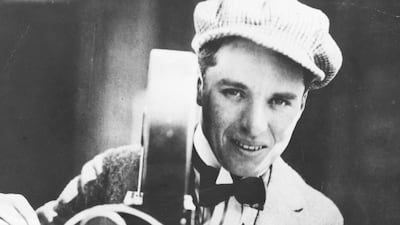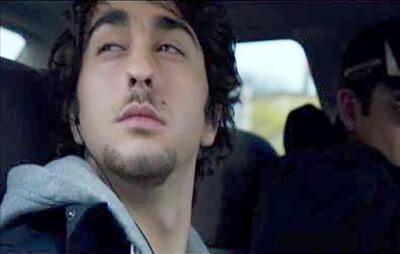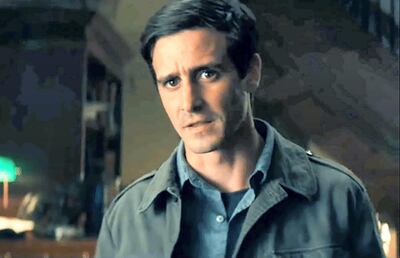From silent film stars Charlie Chaplin and Buster Keaton to modern examples such as Clint Eastwood, Ben Affleck, George Clooney, Jodie Foster and Greta Gerwig, it never takes long before a certain type of thespian feels the need to share their cinematic insights. Others may simply believe they can do a better job than some of the directors they have worked with previously.
While moviegoers are often sceptical when an actor moves to the other side of the camera, it makes sense that so many can take this step and succeed. In the time it takes for a director to finish a project, overseeing every detail of filmmaking, an actor could be involved in several different productions. They may not be as immersed in a movie as its director, but actors can still get used to the set, learn about everyone's behind-the-scenes roles and dissect what really needs to be shot, all while learning different techniques from a variety of filmmakers.
Over the past 18 months, actors such as Bradley Cooper (A Star is Born), Stanley Tucci (Final Portrait), Jordan Peele (Us), John Krasinski (A Quiet Place) and Bo Burnham (Eighth Grade), to name but a few, have each made their own movies. Jon Favreau's The Lion King and Vincent D'Onofrio's The Kid can now also be added to that list.
But what is it that makes actors turn to directing? For Paul Dano, who starred in films such as There Will Be Blood (2007) and Love & Mercy (2014) before making his directorial debut last year with Wildlife, the move behind the camera was the result of falling in love with the medium of cinema.
"Acting led me to film," he says. "Once I dove into film, I loved the idea of making the image and thinking about why you put the camera where you put it, and the sound and the music and the cuts. It is an exciting form.
"It is something my brain latched on to. I wanted to learn about it and I daydreamed about it and I simply fell in love with it."
Becoming a director doesn't happen organically, or quickly, for every actor, though. Alex Wolff, whose first film as a director – The Cat and The Moon – is in post production, is proof of that. He honed his craft as a writer and director over several years, during which he made short films and wrote school plays and scripts. He also starred in Jumanji: Welcome To The Jungle (2017) and Hereditary (2018). "It was just a matter of time," he says. "Originally I didn't know if I would direct The Cat and The Moon. I simply wanted to write it and star in it."
The story centres on a teenager who moves to New York to live with a jazz musician who used to play with the boy's father, all while his mother is in rehab. It was just too "personal and raw" for Wolff not to oversee, he says. But he admits it still took five years to make his script readable. Once he did that, he turned to Peter Berg, who directed Wolff in 2016's Patriots Day, and Josh Boone, who directed Wolff's elder brother, Nat, in The Fault in Our Stars (2014), and they signed up to produce the drama.
While these kinds of connections forged during the actors' career obviously help when the time comes to step behind the camera, D'Onofrio is adamant it doesn't make the life of a director any easier once production has actually begun.
"You have to learn an entirely new skill set," says the star of 1987's Full Metal Jacket. "Any actor who goes into directing, I back them 100 per cent."
Dano says he was "learning constantly" on the set of Wildlife, which stars Jake Gyllenhaal and Carey Mulligan. The experience made Dano appreciate the amount of work required by a film crew to capture a cinematic moment. "It is truly incredible," he says. "It takes a village to get a shot. I really trust the process now even more. I've seen that everyone is working together to make the best movie possible. It is so hard to make a film. There are so many challenges and it is so crazy."
But it doesn't always work out when an actor goes behind the scenes. Sometimes, the demands of being a star can impede any ambitions of making a film.
James Ransone has had a particularly fruitful couple of years in his career, appearing in TV series Mosaic and The First and movies such as Family Blood (2018) and Captive State (2019), while he also plays the grown-up Eddie Kaspbrak in It Chapter Two, due to be released next month. But these commitments meant that when producer Jason Blum, with whom Ransone worked on Sinister (2012) and Sinister 2 (2015), approved his own horror pitch – which he describes as Eye's Wide Shut for teenagers – he simply didn't have the time to expand the idea into a working script that would do it justice. "I got too busy," he explains.
When an actor manages to balance both disciplines, however, it can signal a full career shift. D'Onofrio is already looking for financing for his next project, for which he says he'll need at least $15 million (Dh55m) to make, while Dano is taking a much more patient approach.
"My next idea will probably take a while to cultivate," he says. "Because once you really set out to do it, it's a big chunk of your life. I'm going to do some acting and try to figure out the next thing to direct. But I can't wait to do it again."
For actors who are so used to being a cog in the machine, directing doesn't only provide them with an opportunity to take complete control of a project or show the world there is much more to them than their performances on screen; it is also a natural progression after spending so much time on film sets.
It is the equivalent of a job promotion, as the years they've spent watching, learning and being immersed in cinema have given them the appropriate mindset required to make a film, while also surrounding them with the right people to help them thrive behind the lens. And if it doesn't work out, their well-honed acting career will still be waiting to catch them if they fall.



